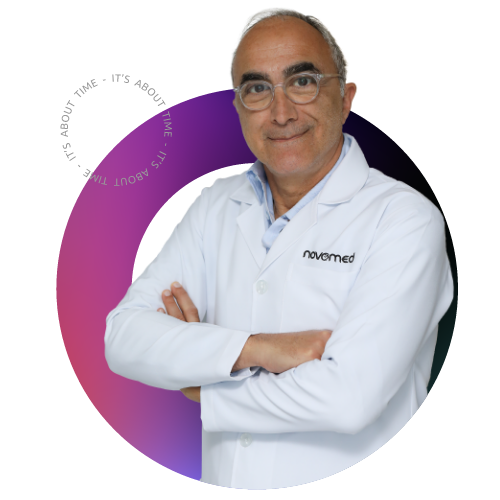Overview
Dyspepsia, commonly referred to as indigestion, is a persistent or recurring feeling of discomfort or pain in the upper abdomen that frequently follows eating or drinking. People with this condition frequently experience bloating, excessive fullness, and stomach pain during and after meals. Dyspepsia can be caused by lifestyle choices, a medical condition, or taking certain medications.
What are the symptoms of dyspepsia?
Symptoms of dyspepsia include:
- Bloating (feeling of fullness)
- Nausea and vomiting
- Stomach ache with a burning sensation
- Acid reflux
- Heartburn
- Gas
What are the causes of dyspepsia?
Among the common causes of indigestion are:
- Pregnancy
- Smoking
- Obesity
- Stress
- Antibiotics and nonsteroidal anti-inflammatory medicines
- Gastroesophageal reflux disease (GERD)
- Ulcers
- Stomach cancer (in rare cases)
- Chronic pancreatitis
- Irritable bowel syndrome
How is dyspepsia diagnosed?
During your consultation, our doctor will go over your medical history and ask about your symptoms. They may order blood tests to rule out other disorders that could produce symptoms similar to those of dyspepsia. The physician may also test using your blood, stool, or breath for a bacterium called Helicobacter pylori (H. pylori), which can lead to gastrointestinal issues. Additionally, they may perform an endoscopy, which involves putting an endoscope (a flexible tube with a light and camera) down your neck to examine your stomach’s interior in detail. The doctor may take pictures of the digestive system and take small tissue samples for a biopsy to check for inflammation.
How is dyspepsia treated?
Although dyspepsia cannot be cured, its symptoms can be successfully managed with medication and dietary adjustments.
Treatment may be necessary for dyspepsia that is persistent. The type of treatment you get depends on your symptoms and the underlying problem causing indigestion. Treatment options for dyspepsia include:
Medications:
– Acid reduction medication: our doctor may recommend a short-term course of medication to inhibit or neutralize stomach acid production. This medication will allow your stomach lining to recover and rest, which will lessen the effects of acid reflux.
– Antibiotics. You may need to take antibiotics if tests reveal the presence of the common ulcer-causing bacterium H. pylori in your stomach.
– Low-dose antidepressants. Low doses of selective serotonin reuptake inhibitors and tricyclic antidepressants may help reduce the activity of the neurons that regulate abdominal discomfort.
– Prokinetics. The chance of upper abdominal discomfort is decreased by prokinetic drugs’ ability to speed up how quickly food moves through the stomach.
Lifestyle changes:
– Eat smaller, more frequent meals
– Stay away from trigger foods, such as fatty and spicy foods, carbonated drinks, caffeine, and alcohol.
– Eat slowly and chew your food fully.
– Keep a healthy weight.
– Quit smoking if you smoke.
– Engage in hobbies or sports you enjoy to lower your stress levels.
How is dyspepsia prevented?
Following these steps will reduce your risk of having dyspepsia:
– Stop eating the meals that seem to trigger dyspepsia
– Eat small meals
– Avoid caffeine-containing foods and beverages
– Learn new stress-reduction and relaxation strategies
– Quit smoking if you do
– Reduce your alcohol intake
– Avoid dressing in tight clothing
– Do not eat just before lying down or going to bed.
Schedule your appointment at Novomed today
If you are suffering from dyspepsia, make an appointment today with our expert gastroenterologist in Dubai by calling toll-free 8006686 or clicking the live chat icon at the bottom of the screen.


























